Venba serves a taster of Tamil culture that will leave you wanting more
"The more local you are, the more international you become."
I think it's obvious when something has been created out of love. Maybe it's in the garnish delicately placed atop fluffy, steaming rice. Maybe it's in the subtle differences you see on a living room wall as it reflects the passage of time.
In the case of Venba, it's both. If you've played the demo, the care and attention to detail of the game's opening level is clear. Now I've seen more, courtesy of a preview presentation and roundtable interview with game designer and creative director Abhi. I came away appreciating how Venba wears its heart on its sleeve, regardless of whether or not you pick up on every single reference.
Venba takes place across three decades, and follows the story of a couple - Venba and her husband Paavalan - after they've emigrated from South India to Canada. Venba touches on themes of immigration, family, culture and assimilation, and food is the language it uses to navigate these conversations.
For Abhi, the food of Venba is just one of many parts of this creation made out of love. Abhi researched typical cooking game mechanics, but felt their focus on things such as timing or movements, seen in such games as Cooking Mama, wasn't what he wanted. Instead, he focused on the recipes themselves, leading to Venba's puzzle-like nature, where players have to figure out the instructions for themselves as part of gameplay.
Recipes are presented as a cookbook passed down through Venba's family. Dishes featured in the game are a carefully curated selection of dishes Abhi chose himself, although he told Eurogamer it was a struggle to decide which ones to include.
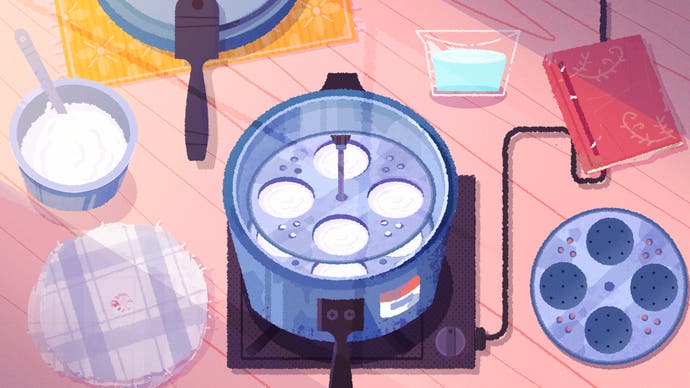
At first, Abhi had wanted to create an experience which was as "in-depth on Tamil cuisine as possible", before he quickly realised it would be impossible to condense something so broad into a comprehensive, short game. Instead, the recipes which made the cut for Venba - including idli, puttu, and biryani - were chosen because they made sense in the game's narrative, and also because they held personal meaning to him.
As you might expect, the team's research for Venba included a lot of cooking. Each dish was made multiple times to create references for art and sound designers. I was shown some of Abhi's attempts at cooking these recipes, and he highlighted the biryani in particular, noting that he drew on his own personal experiences to bring its artistic representation to life by thinking about what made the dish special to him.
Sounds for the game were recorded in-person, with sound designer Neha Patel tasked with jobs such as holding a microphone next to a pan to capture the sound of frying oil. Patel even sifted through a full selection of spices with a spoon to record the different sounds each makes when stirred. There weren't many existing libraries of sounds of cooking South Indian food, Abhi said, so the team decided to make their own.
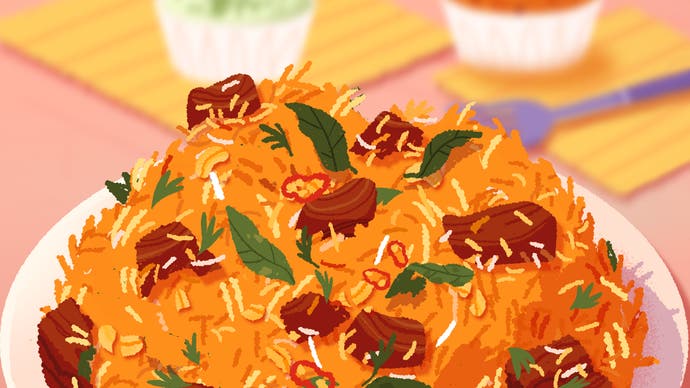
Patel, who is Gujarati, was unfamiliar with South Indian recipes before working on Venba, so she made sure to source the correct ingredients needed to accurately record the game's menu. The number of ingredients available to Venba increases throughout the game, reflecting the increased presence of Asian diasporas in Canada and the normalisation of Asian supermarkets throughout the country, Abhi told us.
As work progressed and as Venba's release neared, Abhi admitted he felt the responsibility of offering "authentic" and "accurate" representations of Tamil Nadu as the game grew in public visibility.
"To me, it's not just a celebration of the food, but the movies, the music, the pop culture, everything," Abhi said. Indeed, there's references to Tamil culture littered throughout the game - Paavalan's design was inspired by prolific Indian actor Rajinikanth. Indian film composer Deva contributed to a track for the game's soundtrack, which itself was inspired by Deva's works.
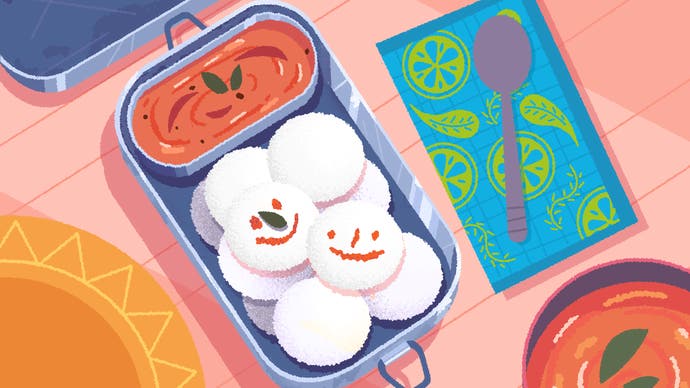
These little references are unlikely to be noticed by players who aren't familiar with Tamil culture, but Abhi said he was proud when he saw them being picked up by the Indian gaming community on YouTube. Abhi recalled the community's initial disappointment when Venba was announced for Nintendo Switch, as the console isn't officially sold in India, before they realised it was also being released for PC.
Even though these nods to Tamil music and cinema may be missed by some, Abhi told Eurogamer he hopes Venba will spark curiosity in players and motivate them to learn about Tamil culture for themselves. "The more local you are, the more international you become," was Abhi's philosophy when creating Venba. It's a quote from one of his favourite Tamil film directors, he told me, and spoken in response to a younger generation of directors who were trying to make a film that could win an Oscar. Abhi told us he had his own "litmus test" for Venba - if it was a Tamil movie, would it be any different?
Before the idea of Venba was first dreamt up, Abhi and art director Sam Elkana had initially been working on a project called Balloon Man, an action platformer in the style of Mega Man. One night, he came up with the idea for Venba instead, and texted it to Elkana. Although the pair spent a couple of weeks continuing Balloon Man, they eventually abandoned it for Venba, knowing that this was the project they wanted to make.
Venba is a far richer experience because of its full immersion with Tamil culture and history, rather than a watered down version meant to cater for a non-Tamil audience. And although it's not fully representative of the diversity of Tamil culture, what it instead presents is one person's affectionately crafted love letter to their own upbringing and culture - starting off with a single steamed rice cake.
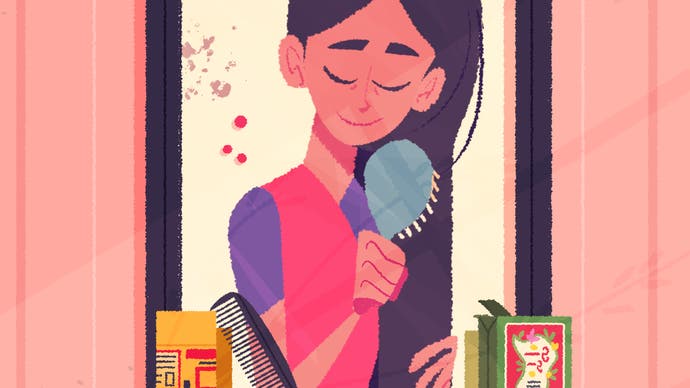




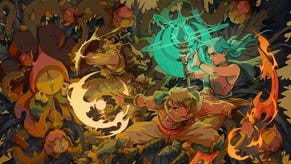
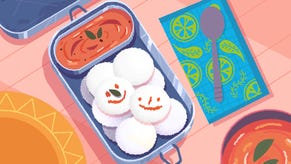

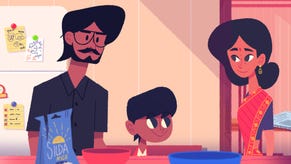




.png?width=291&height=164&fit=crop&quality=80&format=jpg&auto=webp)


